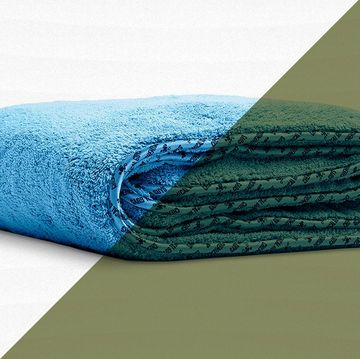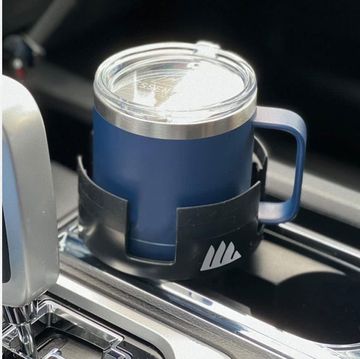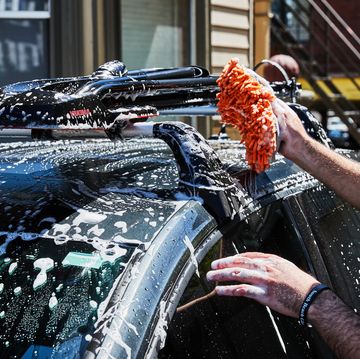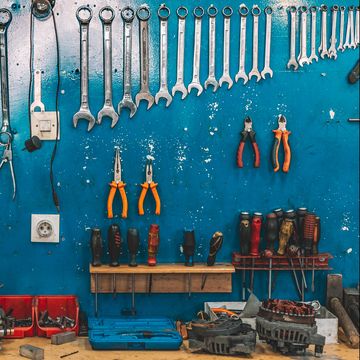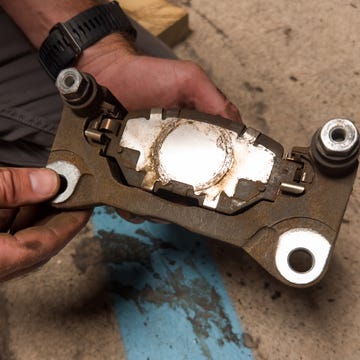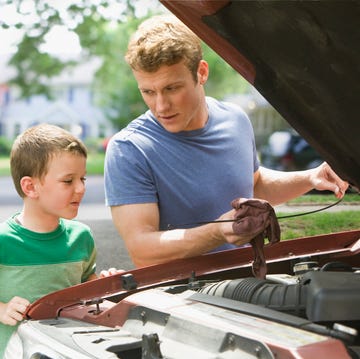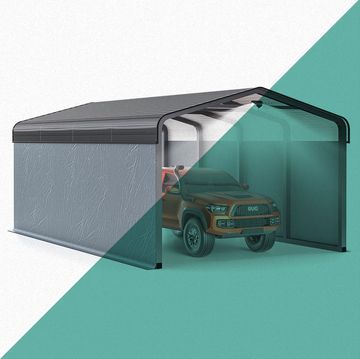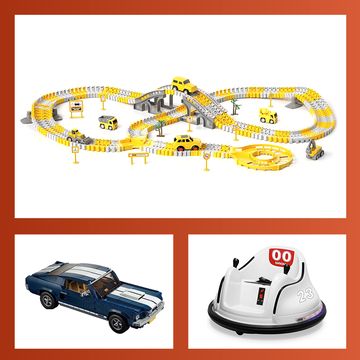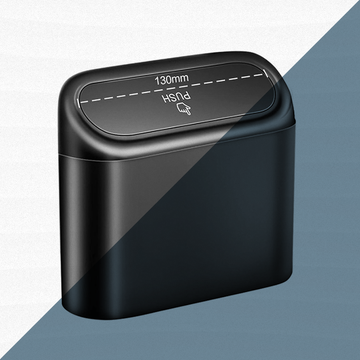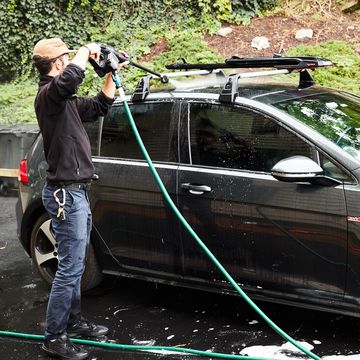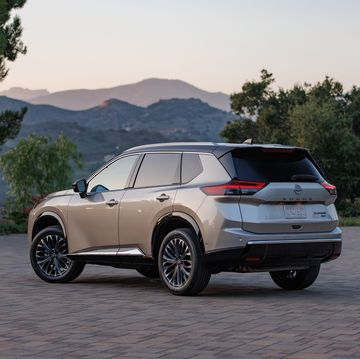High-end classic car auctions like the Barrett-Jackson events are common on cable channels with three-digit numbers, such as Speed and HD Theater. Perfect Shelby Cobras, Ferraris with long racing pedigrees, glorious Duesenbergs, exceedingly rare muscle cars and old Mercedes roadsters so gorgeous that your eyes water cross the block and sell for insane prices.
This is not about those auctions.
This is about auctions where the cars are the most ordinary of ordinary vehicles: Ford Crown Victorias coming off six years of patrol duty with the county sheriff's department. Toyota Tercels with so much mileage that their odometers have worn off the printed numerals. Plain sedans, base model pickups and early '90s Pontiac Firebirds confiscated in drug stings. Cars you can get cheap—maybe.
Interest in these auctions has boomed as the economy stays stagnated and credit rules have tightened. Buyers who formerly could qualify for auto loans on new or solid used cars now find they need to shop with cash. But the United States is a country built around the automobile, and it's a lot easier to get a job if you have a car to drive to the interview, so for many people car auctions are a way to fill the need.
"There are two types of public auctions," explains Steven Lang, who runs a used car dealership in the Atlanta area and once owned a dealer auction (not open to the public). "There are government auctions and there are public auctions." Both are full of potential pitfalls. Here's a quick rundown on both and 10 tips for getting the most out of either. That is, if you dare to venture into the auction pit.
(Note: Online auctions like eBay are an entirely different beast, and through the use of independent inspection services, maybe even a safer bet. But that's a subject for another time. And for those of you bidding in a televised auction, we do have one piece of advice: Don't get so excited that you spill your mimosa.)
Government Auctions
"At a government auction it's, say, a county that has 30 or 40 police cruisers it needs to get rid of. And they want to sell all of it," Lang says. "All the vehicles have known histories—how they were maintained, used and fixed, and their mileage is virtually always honest. You'll know what you're getting." Still, you don't get to drive a car before you bid on it. So you'd better have a sharp eye. Make that a sharp, trained, cynical, wary, pessimistic and rabidly suspicious eye.
But the competition at county auctions is brutal and it's only getting stronger. "Taxi companies want the old cruisers to use as cabs," Lang says. "And often there are government employees who are going after a vehicle that they used on the job and grew fond of. A lot of the school buses and trucks get bought by brokers looking to ship them overseas to poorer countries that will use them for public transportation. These are guys who go to government auctions all the time, know what to pay and know a lemon when they see it. You won't be the only bargain hunter out there."
Buying a car at government auction used to guarantee a bargain, that's not true any more. "With the competition growing so fierce, some cars now go for more than retail," Lang says. "If you're not careful, it's easy to get burned."
Public Auctions
"Public auctions used to be good places to buy cars," Lang says. "Now they're not even remotely good places to buy a car. The only people who should go to public auctions are those who are exceptional in their mechanical inclination and training. If you can't fix a car, don't go to a public auction."
As the action at public auctions has grown hotter, the cars have grown shadier. "I've personally seen cars with over 300,000 miles on their clocks rolled back to 120,000 and sold as 'Miles Exempt' meaning no guarantee of mileage," he says. "Most of the cars at a public auction are the worst trade-ins or very rough repos." And as in a government auction, you can't drive a public auction vehicle before you bid on it.
Cars at public auctions are often those that wouldn't sell at wholesale dealer auctions. Yes, some are flood vehicles, and Hurricane Irene should still be fresh in your mind. Some are cars quickly reconditioned in dealership shops to fill in slow periods when there's otherwise little work to be done. And many are just flat out junk. "A car that goes across the block at a public auction that isn't spewing smoke is often packed with thick racing oil to ensure it doesn't," Lang continues. "Everything at a public auction looks shiny, but shiny doesn't mean much about the quality of the car."
This doesn't mean it's impossible to find a good car at auction; it just means it's getting harder. But if you decide to head down to an auction to gawk and possibly bid, keep these 10 tips in mind.
10 Tips for Buying a Car at Auction
1. Be Honest With Yourself
If you don't have the ability and tools to deal with whatever mechanical challenges may arise, don't talk yourself into believing otherwise. If you're looking for cheap transportation, don't let it become expensive repairs.
2. Use Your Eyes
Cars at government and public auctions sell on visual inspection alone. So look at everything and look for telltale signs of repairs such as paint overspray, less than smooth sheet metal, puddles under the vehicle, scored brake discs, an uneven stance and a million other details. Use your nose, hands and legs, too. If a car smells musty or the carpeting is wet, run away.
3. But Don't Believe Everything You See
Bondo, polish and touchup paint are cheap. Particularly at public auctions, assume every vehicle there has been rubbed on to the point that there's a reality distortion field surrounding it. Nothing is as good as it looks.
4. Don't Let the Superficial Scare You… if You're at a Government Auction
At government auctions, weathered paint may cover a mechanically sound Crown Victoria. A small dent in the tailgate of a Chevrolet Silverado may just be a parking lot thump, not signs of misuse. At public auctions, however, those may mean the car is such a basket case that no one thought it was even worth the effort to try and fool people.
5. Check the VIN
Write down the VIN from the base of the windshield for any car you're considering. Then check other places where the VIN might appear, such as door and trunk lid stickers. If the numbers don't match, the car may have been in a major accident and rebuilt. Look for more promising alternatives.
6. Pull the Dipsticks
If a car has been well-maintained, when you pull the oil or transmission fluid dipsticks the lubricants should be clear and clean.
7. Know Car Values Before You Bid
Online resources such as Kelly Blue Book and Edmunds give a general idea what used cars are worth. But also take time to research local prices on Craigslist and in classified listings. Again, pride works against you here. If you don't know about car values, don't try and fake it.
8. "As Is" Means "As Is"
Vehicles at auction sell in "as is" condition. That means there are no guarantees, no warranties and no means of legal recourse. If you don't have the stomach to survive discovering you've bought a heap of trouble, don't bid in the first place.
9. Observe Other Bidders
Take your time and watch the action closely on all the cars up for auction. Look for suspicious actions such as bidders who seem to be active on every lot; they may just be trying to pump up the prices. Go to a few auctions before actually participating in one yourself. Get to know the players.
10. Don't Get Caught Up in the Bidding
It's easy to get carried away during bidding and wind up spending hundreds more than a car is worth. Don't pin all your hopes on one vehicle. Be ready to walk away. If you have to take the bus home afterward, it's still better than winding up with a clunker.

John Pearley Huffman has been writing about cars since 1990 and is getting okay at it. Besides Road & Track, his work has appeared in Car and Driver, the New York Times and more than 100 automotive publications and websites. A graduate of UC Santa Barbara, he still lives near that campus with his wife and two children. He owns a pair of Toyota Tundras and two dogs. He used to have a Nova and a Camaro.



